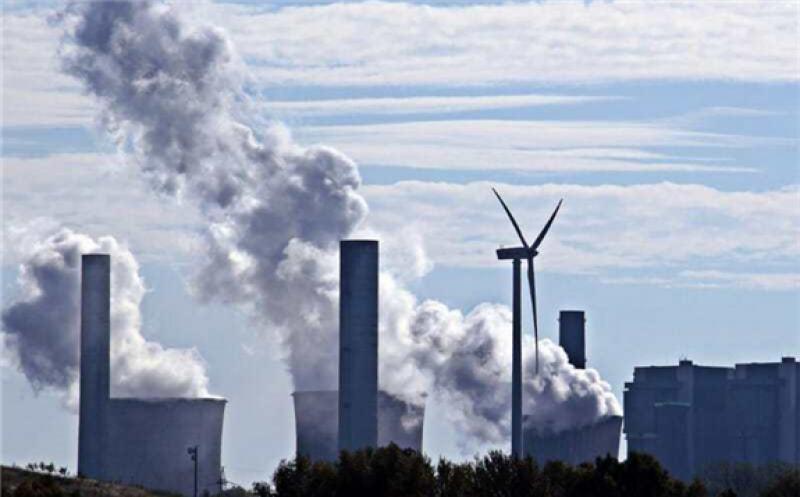The Deutsche Bank has tightened its ‘Fossil Fuels Policy,’ which provides for a stricter framework when dealing with business activities involving coal, oil, and gas.

The bank is likely to end its global business activities in coal mining by 2025 as a move to facilitate the transformation to a sustainable economy. Earlier, the bank had set itself a target of lowering its loan exposures to coal-fired projects by 20%, and it achieved its goal by the end of 2019.
The new policy contains new guidelines that dictate how the bank will deal with energy companies that are more than 50% dependent on coal. The bank will offer to finance companies in the future if they provide relevant diversification plans.
Also, it would not finance projects in the oil and gas sector which use hydraulic fracturing in countries with scarce water supplies, new projects in the Arctic region, and new oil sand projects.
In addition to this, the bank also announced that it had signed the Equator Principles, which is a risk management framework considering the environmental and social impacts of financing projects. The principles will make sure that stricter environmental and social standards are applied during the project development period, and projects adhere to these norms. The bank has already signed the International Finance Cooperation’s (IFC) performance standards, and it is in line with Equator Principles in most of the cases.
These latest decisions are part of Deutsche Bank’s sustainability strategy. In its press statement, the bank also added that it had announced its sustainability goals in May and its first own green bond in June this year.
Commenting on the tightening of its ‘Fossil Fuels Policy,’ CEO of Deutsche Bank, Christian Sewing, said, “Our new Fossil Fuels Policy sets us a strict framework for our business activities in the oil, gas and coal sector. In its current form, the policy sets ambitious targets and enables us to help our long-standing clients with their transformation. It will allow us to play our part in protecting the climate and helping the EU to achieve its goal of being climate neutral by 2050.”
The new policy is expected to fulfill the commitment of the German financial sector toward climate action, which the bank signed in June this year. The agreement includes the commitment to introduce methods of measuring climate impact by the end of 2022 and regulate them in accordance with the climate targets. The bank will announce its client relationships in Europe and the United States by the end of 2020, and the bank will start reviewing its relationships in Asia and select developing markets in 2022. The bank is starting later in Asia because the transformation in Asia will take a longer time owing to the region’s high dependency on coal.
Coal, one of the most significant contributors to climate change, is on its way to becoming unfundable. Several banks across the world are stepping back from financing coal-powered projects. Here are a few notable announcements from the past:
In April this year, Japan-based Sumitomo Mitsui Financial Group Inc (SMFG) decided not to provide support to the newly-planned coal-fired power projects. In its statement, the company said that ever since the adoption of the Paris Agreement, efforts to address climate change have been accelerated, and there is a global movement towards decarbonization, including the Japanese government calling for an 80% reduction in greenhouse gas emissions by 2050. Japan’s Mizuho Financial Group also announced that the bank would not finance new coal power projects.
Earlier, U.S.-based JP Morgan Chase, one of the world’s largest banking institutions, announced that it had committed $50 billion (~₹3.59 trillion) towards green initiatives as part of a larger $200 billion (~₹14.37 trillion) commitment towards the United Nations Sustainable Development Goals.
The banking giant said that the committee aims to address a broader set of challenges in developed and developing countries to narrow down persisting social and economic development gaps.
The European Investment Bank (EIB) announced that it would end financing fossil fuel-based projects by the end of 2021. The global lender now wants to focus its financing for projects that will accelerate clean energy innovation and energy efficiency.
British multinational banking and financial services company Standard Chartered has also pulled the plug on any upcoming coal-fired power plants across the globe.
Earlier, in a decision taken at its annual general meeting, the United Overseas Bank (UOB), Southeast Asia’s third-largest finance group announced that it would stop funding coal-powered projects. Before UOB decided to quit funding coal projects, two other big banks from Singapore, OCBC and DBS had taken the same decision in support of sustainable development without fossil-based fuels.
Then, HSBC, another well-known banking company, withdrew from the coal-fired power sector. It should be noted that HSBC, which is Europe’s largest bank, had significantly restricted its support for coal-fired stations back in 2011 itself. It also had stopped financing them in 78 developed countries. In a press statement on its website, HSBC stated that it has decided not to extend any financial support to coal-fired power in all countries around the world apart from Bangladesh, Indonesia, and Vietnam.